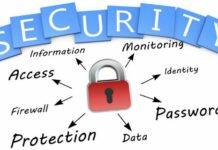Developing and maintaining a well-organized network has become a top priority in today’s tech dependent world. A network can be crucial to the professional success of an individual or an organization. Here are some tips for successful computer networking.

Updated Operating System:
The older version of windows operating system doesn’t provide much security to the network. The security provided by older operating systems can be easily breached and information can be retrieved by any anonymous attacker using proper hacking techniques. Updating the operating system to the latest version provides increased protection on network security. The Windows XP is a decade old now. August 24th, 2011 marked the 10th anniversary of Windows XP. When upgrading to latest windows operating system, make sure to opt for the 64 bit OS rather than the 32-bit OS, as it is harder for the hackers to compromise the security.
Minimize the administrator accounts usage:
The first account set up on the Windows operated computer has system administrator rights, the account must not be named “administrator”. The frequent usage of this account for day-to-day computing activities leads to multiple threats encountered when browsing the internet or accessing the e-mail. The counter-measure is to create a user account for everyday work use. Use the administrator account when an absolute need exists- such as installing hardware or any software, configuration changes.
Use FDE on laptops:
Full Disk Protection abbreviated as FDE provides you with added security not just for some specific files and folders but to the entire computer, including the operating system. Laptops can easily be stolen or lost, in cases like that, a standard password protection might not be sufficient to protect the data from the thief from gaining access.
Get rid of Office 2003:
Microsoft office 2003 uses a binary file format that executes possibly malicious code when opened. The newer Office 2007 and Office 2008 versions use the XML format incredibly reduce this issue. Office 2010 has a much-advanced feature that includes a read-only mode that views potentially harmful files in a protected view.
Use Strong Passwords:
A strong and secure password makes it highly difficult for hackers to breach into the network and will force them to search for other easier targets. All networking devices, from printers to routers should be configured with secure passwords. A strong password comprises of at least eight characters, mixed case letters, symbols, and numbers.
Keep the programs updated:
Make sure that the third-party programs on your computer are updated to the latest versions. The newer versions usually include new features that may provide improved service to the user. If the programs are not automatically updated, check for programs and software that need an update and manually update them to the latest versions.



